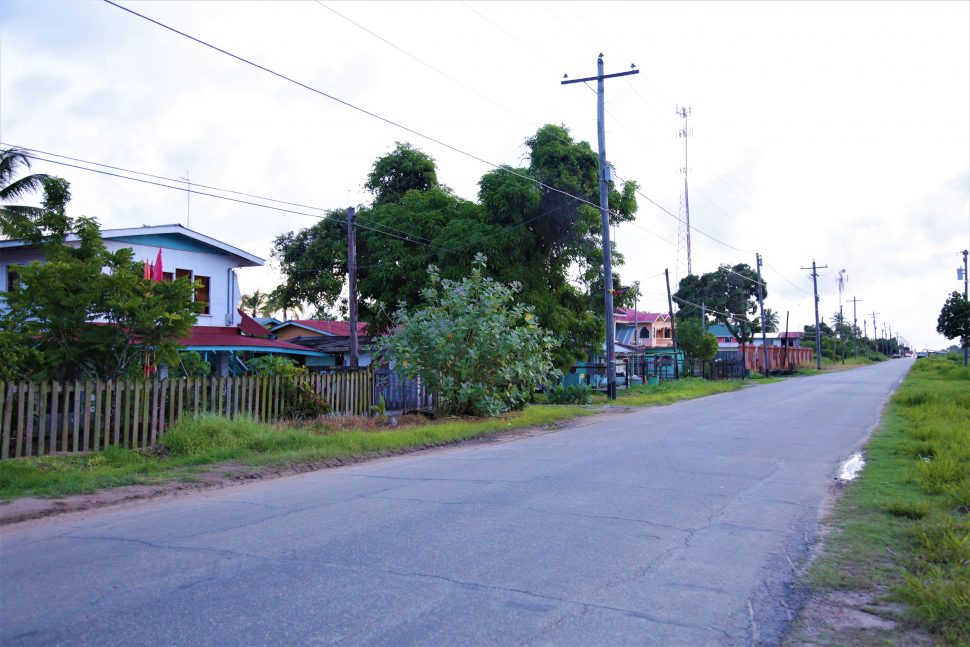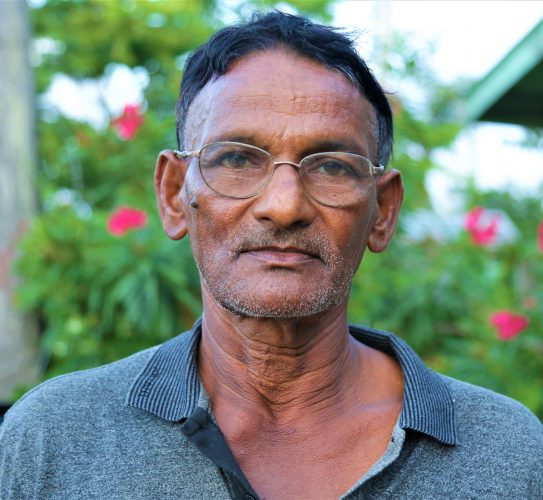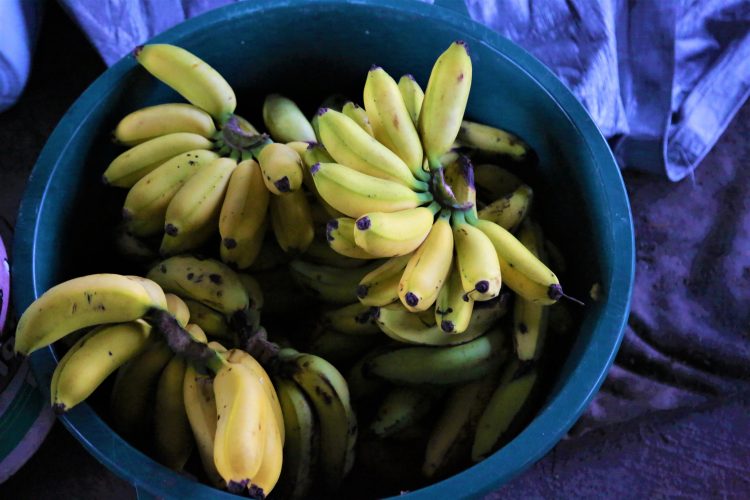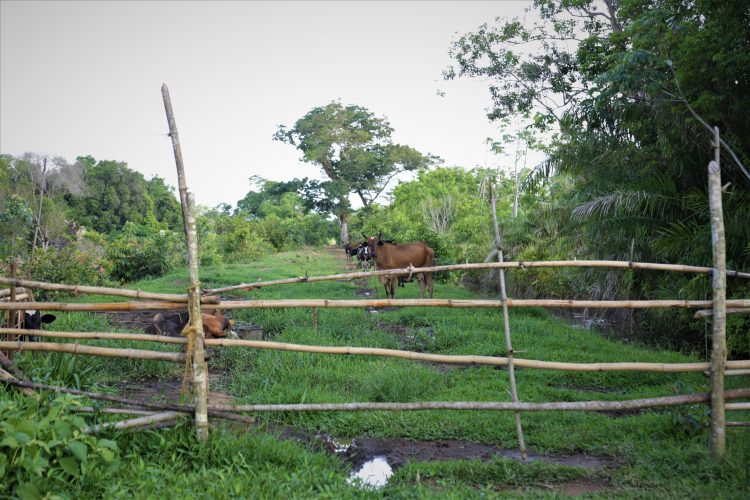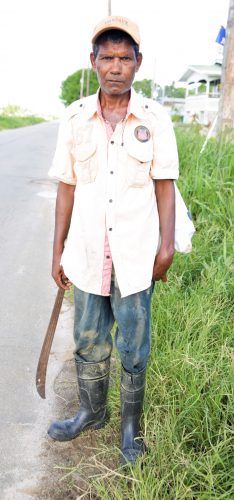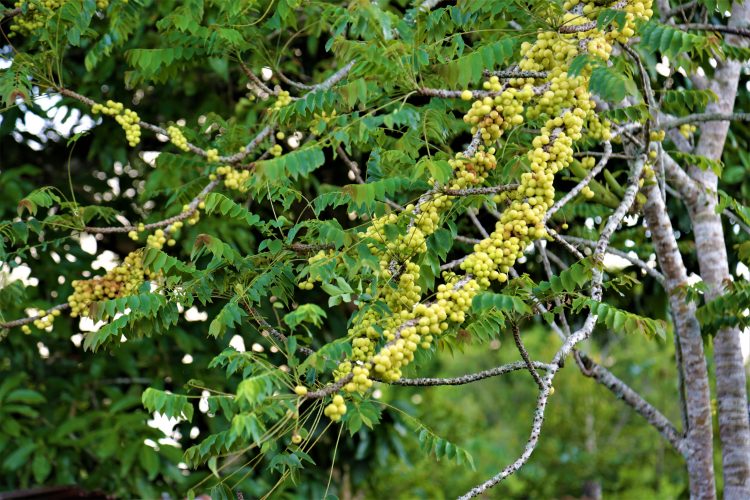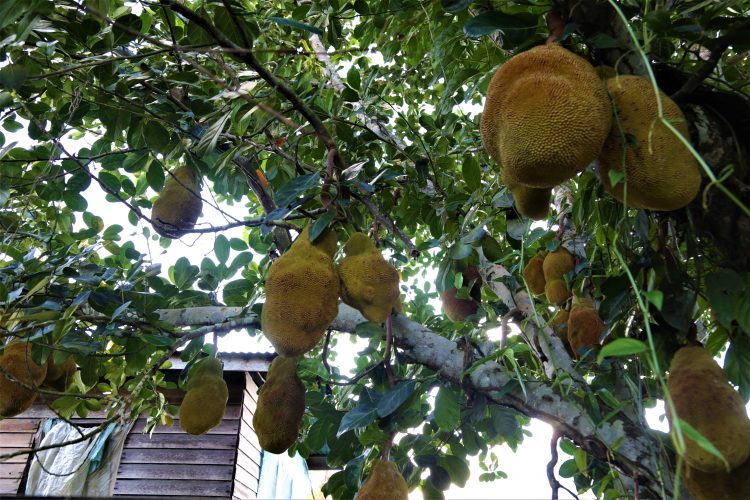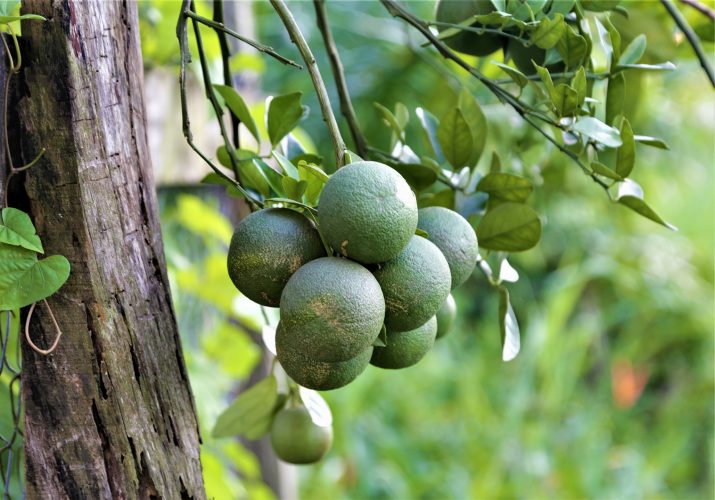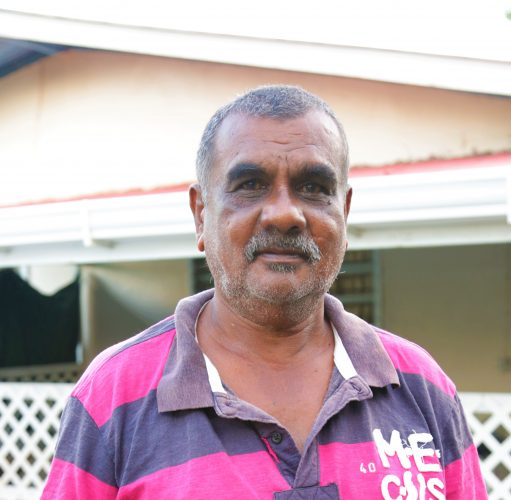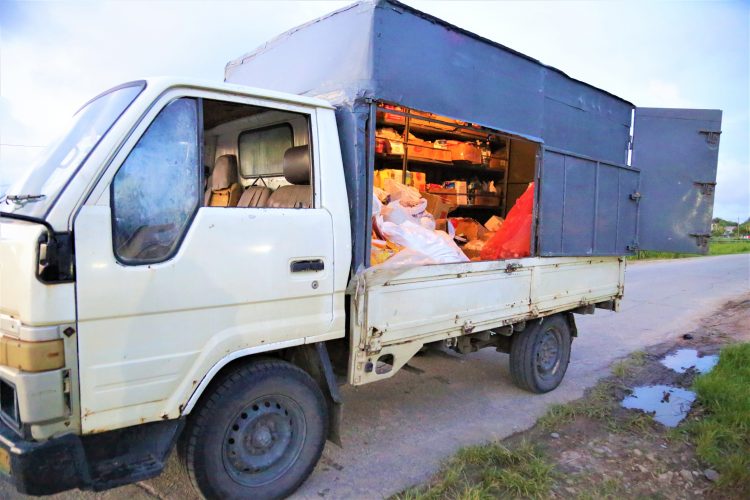Mes Delices, situated 12 kilometres from Vreed-en-Hoop along the Canal Number One Polder Road, is bordered by Geneve and Jacoba Constantia. It has a population of less than 100 people.
The name is of French origin and translates to ‘My Delight’.
On the day I visited, the rain had left the village damp and many persons were indoors; the village seemed empty of children. A few of the men gathered on the road however, savouring whatever sunlight they could.
Derick Gokul, dressed in tattered clothes with a cutlass in one hand, was making his way to the backdam. A security guard, he was about to turn in for his shift.
“I live in this village 54 years now. I born and grow here,” he said. He grew up with three brothers and three sisters. He fondly recalled walking to the Two Brothers Primary School with his siblings and neighbours. The road then was what he called a “mud dam. Going to school and coming from school was always fun. We played on the road when we going and played when we coming back. We played tag and marble, all thing we play, and we would stop and pick mangoes and other kind of fruits. Now ain’t like before. Before time you coulda gone at anybody or in the backdam and pick fruits for free. Now is something different; you got to ask or buy. Everything selling now. Now the people chop down the tree them to plant other crop. Mes Delices plant mostly citrus and pine.”
Mes Delices, Gokul said, was more populated than it is now. Many of the families have since migrated. He explained that he was going to work, adding that the recent bush fire during the drought had not only ravaged many farms, but burnt an access bridge leading further into the backdam. The bridge is currently being rebuilt and Gokul is one of the guards on the project. Prior to taking up security work, Gokul worked as a labourer on several private farms. However, an incident three years ago rendered him unable to do heavy work; he lost part of his hand.
One of Gokul’s concerns is better drainage as he claims that because the village is low, it floods easily. According to the man, sometimes the floods come as high as two feet.
Here and there fruits hung over fences. At Rudolph Dookhan’s place, oranges escaped the fence. A farmer, Dookhan had just returned from his farm.
“I plant a variety of crops: avocado, citrus (orange, lemon, grapefruit and seedless lime). I have tangerine also but not for the purpose of selling. I have a hundred coconuts, mangoes, breadfruits, katahar, jackfruit, five fingers and a few others. I also have soursop plants. We the farmers got to sell it to a middleman and middleman got to sell it to a third man and third man got to retail it. As a farmer, we’re just getting a fraction of the money and we’re the ones investing the most. You may sell a soursop for $400 or $500, but when you go to the market you have to pay $1,000. If the farmer should sell to the consumer himself, it’ll be more profitable. We sell avocado for $100, but when you go to the market, it’s 2 for $500. We would sell big pineapples for $3,000 a dozen, or, as in the case of oranges, $3,000 for 100. When you work it out is $30 an orange,” Dookhan said.
Getting up from his seat Dookhan left and returned with a book. In different sections of the book in clear detail, he has each crop listed, how many of which kind was planted and the date. Another part showed the amount of fertilizers and pesticides he bought along with the date and the reasons for which they were bought. Yet another section revealed how many times the Agriculture Extension Officer assigned to Canal Number One had visited along with his remarks and signature. The last section of the book he had designated for reports on his observation of how the fertilizers and pesticides were used and whether they were successful.
Dookhan then went on to list all that he had bought from time to time, explaining that not one or two fertilizers can be used for all the crops as they would need different nutrients and stimulants, and the same went for the insecticides as regards the insects. His list consisted of 15/15/15, limestone, urea, 12/12/17/2 and weedicides such as Carmex, 2/4D and Cutlish. He further said that 2/4D and Cutlish cannot be used on pineapple plants as they work into the ground and can damage such crops.
Dookhan’s biggest worry at present is Acushi ants. He uses a particular insecticide commonly known as ‘bait’. His book showed that he was affected by the ants last year on April 10, but he had gotten rid of them. However, they returned this year in March, not once but twice in the same month and again this month.
Dookhan said that not many farmers are willing to take the time to record information on their crops and how they go about dealing with produce and selling it. And though he’s not one to brag about it or let such information out, he would not turn away any farmer needing his help.
Because of the flooding of the farms, Dookhan spent quite a hefty sum having a drain dug, six feet deep, fourteen feet wide and three quarters of a mile long. The benefits, he said, are four-fold and allow for the drainage and irrigation while also allowing him to move with his boat from his farm to the canal; the mud was used to build the farm.
Asked whether he was always a farmer or if he did other jobs that required bookkeeping, Dookhan revealed: “My first job was as a teacher. I began teaching at 16 years of age. I first taught at Mara Church of Scotland School, East Berbice for two years. I was transferred [to] Uitvlugt Church of Scotland which became Uitvlugt Primary in 1976 when the then government nationalised all the schools. Now I hear it is a secondary school. I taught at that school for 12 years.
“Teaching was not as profitable so then I took up nursing which paid better. I worked at GuyMine Hospital for three years. During a one-year nurses’ programme in Georgetown I met my wife, who was a nurse also.”
Now 64 years old, Dookhan said that he later worked with Omai Gold Mines and then at Toolsie Persaud Ltd in the administration area where he did bookkeeping. He left to take up farming and began by planting cassava, an occupation he does not at all regret. Cassava, he said, was in high demand and was sold for $1 a pound. He would take 1,500 pounds up to Linden to sell. He also sold eddoes and plantains, which took care of his passage to and from the mining town. The money made from the cassava was saved.
One third of Mes Delices, Dookhan said, was owned by the Dookhans and other relatives. His grandfather, James Dookhan, came from Uttar Pradesh state in India as an indentured servant. He arrived to work on the Versailles Estate and later settled in Mes Delices. He saved his money and was able to purchase land which was passed on to his eight children. He had begun farming the land by planting coffee, but that crop wasn’t profitable. He planted avocado also. His grandfather saw to it that all his children were educated, both boys and girls, Dookhan said.
Speaking of living in Mes Delices, the man said that the neighbourhood is peaceful. However, because of an occurrence three months ago where someone broke into the house while his wife was still at home while he was away at a wake house, the family has now taken to locking up by six o’clock every evening.
Because of the church schools, Dookhan said, a number of persons converted from Hinduism to Christianity. His wife attends a church at the end of the village, which is also the lone place of worship. He said that what he would like is for youths, regardless of religion, to attend their respective places of worship as he believes this would help them attain much-needed moral values. Dookhan said too that he hopes that persons can do more agriculture, adding that it is the backbone of any nation.
Dookhan walked around his yard pointing out a few plants including a really nice patch of callaloo, a bunch of bananas, tiny plants in a nursery, and a tree laden with gooseberries.
Aaron Damdar was out on the road taking in whatever bit of sunlight he could before the rain came again. He is a distant cousin of Dookhan. The two men are related through their grandfathers who were brothers.
Damdar grows pineapples and has been a farmer for most of his life except for six years he spent in the military. The training afforded by the army, the man said, provided him with much discipline enabling him to react to people in “a more mannerly form and a more defence form” whenever the need arose.
“The acushi ants is what affecting us the most here,” he said. “The Ministry of Agriculture van passes through here often and every time you tell them about getting the bait for the ants, they would say yes and forget about you. They got the bait, but you got to go till at NAREI, till at Mon Repos, somewhere. For you to drive from here to there and back, is a whole half day you losing. They need to have the bait available at a more convenient location.”
Because of the acushi ants he had to stop farming citrus on his farm and rent land to plant his crops.
The last bush fire, Damdar said, was started by a resident of the village who decided to light a heap of garbage. He was chatting with a friend when they saw the huge fire, which had gotten out of control and was threatening houses. Villagers came together using buckets to try to contain the blaze which spread to farms in other villages. The fire service later arrived on the scene.
No houses were destroyed in the fire, but many crops were. Damdar said that he lost a number of fruit trees including a huge mango tree that had been around since the days of his grandparents. However, with the recent rains, the tree has begun sprouting new shoots.
Nearby, another relative packed bananas in a tub. The bananas, Damdar said, were his son’s produce. His son, he added, makes pineapple jam for sale, pointing to a large wok with the boiled fruit in it.
In between his crops, Damdar would take up jobs with the Neighbourhood Democratic Council helping to clean the canals using tractors.
